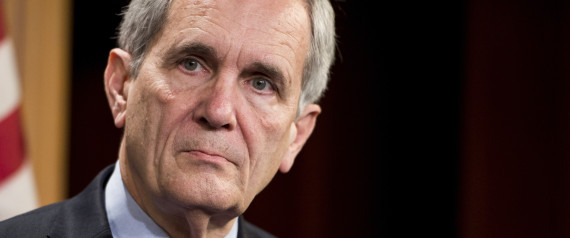
WASHINGTON — A Democratic congressman has accused the Obama administration of dodging his request for “unimpeded” access to two controversial trade agreements — reigniting a dispute over transparency as the president presses legislators for so-called “fast-track” authority, which would block members of Congress from offering amendments to either deal.
[Reposted from the Huffington Post | Dana Leibelson | February 16, 2015]
Rep. Lloyd Doggett (D-Texas), a senior member of the House Ways and Means Committee, wants to view an unredacted copy of the proposed text of the Trans-Pacific Partnership (TPP) and the Transatlantic Trade and Investment Partnership (TTIP). He wants to bring his chief of staff, who has a top security clearance, and he wants to be able to take notes privately. He also wants to review documents that show the position of each country participating in the agreements, as well how the U.S. position has changed over the course of the negotiations.
In a letter this week, Doggett accused Michael Froman, the United States Trade Representative (USTR), of avoiding his requests since January. “USTR has provided no legal justification for denying such Member and staff review,” wrote Doggett.
The text of TPP is treated as a state secret — to a degree. Access to TPP texts is limited to members of Congress and staffers on the Senate Finance Committee and House Ways and Means Committee who have an official security clearance. Hundreds of corporate lobbyists and executives are given access to U.S. negotiating proposals, along with dozens of representatives of labor unions, nonprofits and other consumer groups.
But exactly which congressional offices can see the texts has become a point of frequent contention between the White House and members of the legislative branch — particularly Obama’s fellow Democrats.
Most Republicans have promised to grant the president fast-track authority, but free-trade skeptics — including most Democrats and some House Republicans — are hoping to vote down such a measure. The limited transparency surrounding TPP has been a persistent concern, especially among Democrats, after a 2014 meeting in which some Democrats say Froman privately walked back a public promise to secure strong, enforceable environmental standards in the deal. Liberal lawmakers and organizations are also concerned about the pact’s ability to undermine labor rights and other important regulations.
Andrew Bates, a spokesman for the Office of the United States Trade Representative, reiterated to The Huffington Post that all members of Congress are provided access to the classified TPP negotiating texts and U.S. proposals.
“We have been in touch with Congressman Doggett’s office regarding his request to review negotiating texts, but we have not yet been provided a time when he is available,” said Bates.
Leslie Tisdale, a spokeswoman for Doggett, confirmed that the congressman’s office received a call after they sent the letter to Froman. She said USTR “has said ‘when do you want to come in for the review’ — but it’s not a meaningful review.” She added that the Congressman “can’t take notes, it’s not private [and] all of these things we outlined in the letter are still not addressed.”
Doggett told HuffPost on Friday that he is not seeking special access, only “the access that all Members should have in order to exercise proper congressional oversight.”
Some Democrats have said they are satisfied with the current state of review. Rep. Ron Kind (D-Wis.), who co-chairs the corporate-friendly New Democrat Coalition, told USTR at a House Ways and Means Committee hearing that “we do appreciate the access to text and being able to walk through with your team specific questions or concerns that we have.”
Other lawmakers have shown less enthusiasm.
“There has been some progress on transparency, but more must happen,” Rep. Sander Levin (Mich.), the top Democrat on the Ways and Means Committee, said in a statement last month.
Rep. Alan Grayson (D-Fla.), who has viewed the text of TPP, told HuffPost that he found the process beyond burdensome.
“They created ground rules that are farcical,” he said, claiming that he couldn’t have staff in the room, couldn’t go home with the documents, couldn’t take notes of the documents, couldn’t discuss the contents with staff, constituents in the media or other members of Congress outside of a classified facility, and had to be watched while he was reading.
“I said after reading the documents, ‘It’s a punch in the face to the American middle class, but I can’t tell you why,'” he added.
This story has been updated to specify that outside groups are given access to U.S. negotiating proposals.













